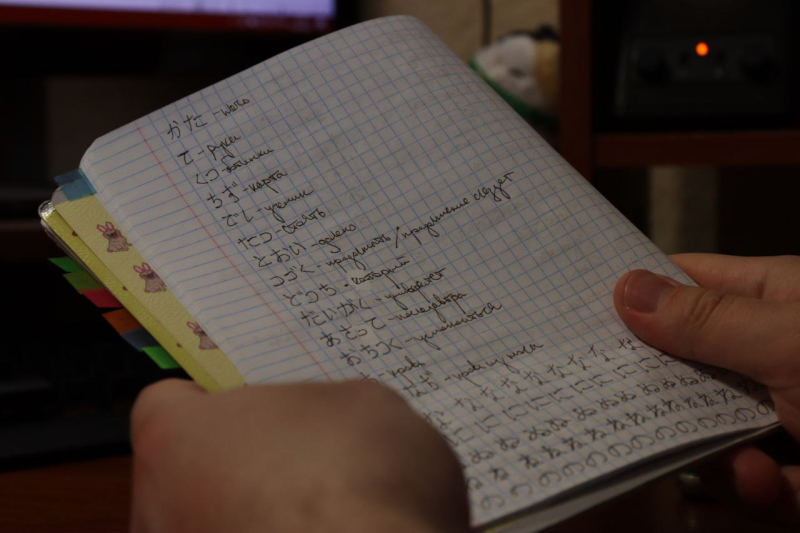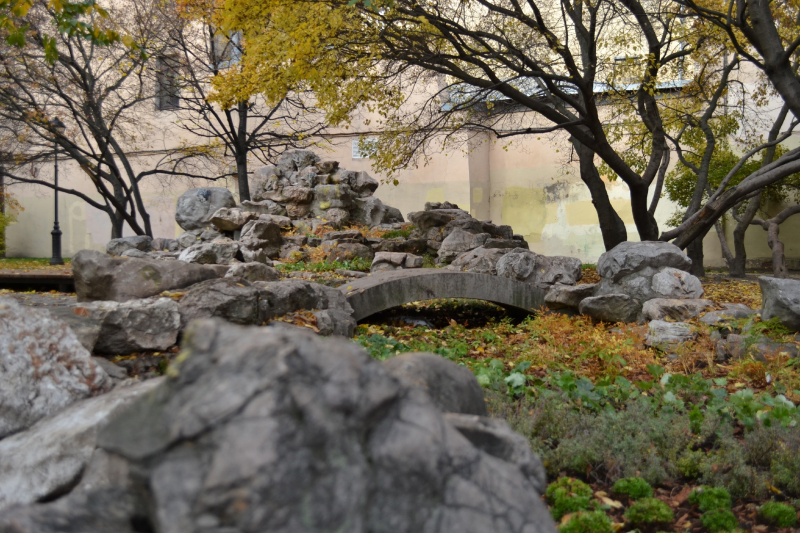Master's student, Game Development Technologies
The Eye-Opening Journey of Language Learning
Learning foreign languages is a beautiful journey through history and traditions and even your own mind. In this article, I’m going to share its spectacular beauty with you and show you how far you can go without moving an inch.

We all remember how we learned about dimensions. Whether it was at home or at school, the explanation was probably the same: we had to imagine a person who is living in a 2D world and how he would perceive interactions with us as 3rd dimensional beings. That led us to a question: what if we are just like this imaginary person, trapped inside his 2D world, and what would a 4th dimension look like? Well, I don’t know what it would look like, but I think I know how it would feel to suddenly be able to see it. Because language learning does basically the same thing — you become able to see more in familiar spaces.
My language learning journey started like most of them do — with studying English. I wasn't the brightest star in the sky, but my foundation was pretty solid. Not enough to comfortably consume content in English, though. And I was pretty happy in my ignorance, everything I’ve read and watched was in Russian and if I couldn’t find anything in this language, well, I just didn't even think that I could find this information in foreign sources.
But it all changed after I got accepted into university, my peers had a pretty good level of English, so they were enjoying memes and videos in it. And, of course, I felt bad about the fact that I had a low level of English compared to them, especially when they had to translate memes to me and explain the word play. So I was pushed by my own ego to start learning English by forcing myself to consume English memes and, later on, by enrolling into a language school.
It went quite well, the best part was the necessity to speak only English during lessons with my teacher, who did not speak any Russian whatsoever. At some point, I was able to watch foreign videos (with relatively low-level English, but still) and, from that point, the snowball effect kicked in. It went so far that now the overwhelming majority of the content that I consume is in English. But the realization of that whole "being able to understand foreign language" situation stroke me months after it became the case. And when it did, I understood two things. First, that I really like it and second, that I want to learn another language to be able to freely understand even more content.
So it was decided: I started to learn Japanese. And when I did, I encountered another spectacular thing about language learning — the culture! Because English is the language of Hollywood and a lot of video games and it is also a western language, I was already a part of this culture even without learning it. Then for Japanese it was not true for the most part, even though I liked anime and games by FromSoftware. I learned about the history of this language; how its writing system originated from China; and the fact that one of it’s three scripts was prohibited for women (but one of them still wrote the first ever romance novel), and, the most important thing, I learned some common expressions, which helped me understand their culture even more. Of course, I could learn them even without memorizing their scripts and pronunciations, but I believe the knowledge of the language helped me understand it more fully and also look at aspects of the culture which I would probably overlook otherwise. I felt the childish joy of being able to translate what was written on a carton of milk with a cow drawn on it in a Naruto episode (the word was "cow," but I still was proud of myself).

Then I decided to take a break from learning Japanese to learn the language of my best friend, Armenian. And, yet again, I found myself fascinated by its differences and similarities to other languages and how rich and interesting Armenian culture is. And, the most beautiful thing about all of that was the fact that now I was learning the language of culture which basically surrounds me, because there is a lot of Armenians in St.Petersburg and, as a result, a lot of Armenian restaurants and shops and, of course, we have a beautiful Armenian Church right on Nevsky Prospect. And all of that was existing in, basically, another dimension about which I’d had zero to no clue.
Now, when I’ve moved on to studying Hebrew (the language of the culture of which I am a part of) I’ve felt the same feelings — the joy of learning more about a culture and meeting the people from a new community. The mind-blowing ability to see new things at the old and deceptively familiar places. The deeper understanding behind names of things and places. And even a fuzzy feeling of just being able to read what is written on a shampoo bottle (even though it is usually translated right below).
In conclusion, I want to say that, of course, language learning is a hard process, of course, it takes a lot of time to get even to be able to watch simple videos in your target language (even with subtitles in that language being on) and even more time to become, so called, fluent in it. So be prepared for this, don't believe it when you see a video with a title like "I've learned this language in a month." It’s not going to happen (aside from languages which are artificially created to be extremely easy, like Toki Pona), but this challenge makes it so much more interesting and rewarding. But the most important thing is not that it’s hard, but that it’s possible and it is worth it.
